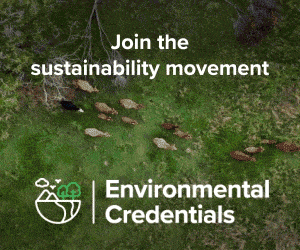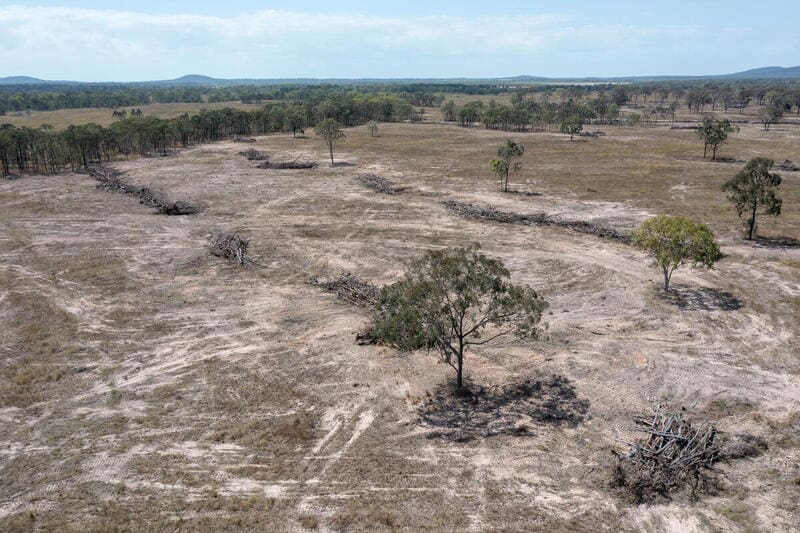CATTLE Australia has defended its work to define deforestation in the Australian context after Greenpeace labelled it an attempt by industry to water down definitions – without even waiting for the definition to be released.
Greenpeace put out a statement at the start of last week ahead of CA releasing the underpinning principles of its ‘Land Management Commitment’ at Beef 2024.
“It is simply not credible for the beef industry to cook up their own fantasy definition of deforestation and deny there is a problem — it’s like the fox guarding the henhouse,” Greenpeace head of nature Glenn Walker said.
One of the clear messages to come out of last week’s Beef 2024 event in Rockhampton was that the rubber is hitting the road on deforestation-related regulations from both Governments and supply chains. The European Union is starting its deforestation-related trade barrier later this year and several companies are due to put in policies next year.
Many fear the deforestation policies could put routine land management practices in Australia on the same playing field as cutting down rainforests like the Amazon.
In response a working group, headed up by Cattle Australia, have been putting together a deforestation definition to better reflect landscapes and land management in Australia.
“Clarity on definitions is an important first step towards ensuring data is used within the correct context, and this is a priority of our industry,” CA said in response to Greenpeace.
“This is why we are actively engaging with stakeholders from within and outside of the sector, as we move towards development of a national framework to international reporting requirements.
“The door is always open to sensible and respectful discussion that will genuinely lead to greater outcomes for the landscapes, animals, biodiversity, food security and communities throughout Australia and across the globe.”
Hostile approach to environmental debates
Greenpeace’s attempts to discredit the industry’s work before it was even released reflects the increasingly hostile environment in which climate-related discussions are playing out.
Last month, Beef Central wrote about an organisation encouraging journalists from some of the world’s most respected news organisations to “pre-bunk” certain climate information before someone even has the chance to present it.
Integrity Ag & Environment principal Dr Stephen Wiedemann, one of the industry’s leading environmental consultants, told a Beef 2024 seminar about some of the reactions this kind of debate is generating. He gave one specific example of a processor being asked to ensure a customer that they don’t buy beef from Queensland.
The subject was also addressed by former New Zealand prime minister John Key, who advised the beef industry not to engage with The Greens Party and many environmental NGOs because he believed they will not engage.
 “They will never change their mind, their minds are made up – ‘you are bad, you cause climate change’ – they will never change,” Mr Key said.
“They will never change their mind, their minds are made up – ‘you are bad, you cause climate change’ – they will never change,” Mr Key said.
Asked whether Mr Key was right, Mr Walker said Greenpeace believed most cattle producers genuinely cared about the land.
“It’s not an us and them situation — it’s about being really clear about where the science is, and what community expectations are, to protect forests and wildlife,” he said.
Beef Central asked if it is not an us and them situation, why is Greenpeace accusing CA of trying to water down deforestation definitions before it even has a chance to publish the definition.
This article will be updated with any response we receive.
Regrowth control in focus
Greenpeace says it believes the Australian beef industry can operate without deforestation, referencing a report from The Wilderness Society that said only 5pc of Qld producers were responsible for deforestation.
Many in the beef industry also believe the industry can operate without deforestation, provided the definition is right and it allows for routine land management.
While Qld and other states already have strict vegetation management laws, it appears the deforestation legislation will go above those laws – with managing regrowth at the heart of the debate.
Greenpeace wants to see certain types of regrowth protected under deforestation policies.
“At a bare minimum, regenerated forests above 15 years of age must be captured, as this aligns with the definition of “high value regrowth” under Queensland’s Vegetation Management Act 1999 and is easily measured,” Mr Walker said.
“The destructive practice of “thinning” a forest or bushland must also be classified as deforestation or conversion.”
Cattle Australia is yet to release the full details of its land management commitment, however its underpinning principals are about letting producers make informed decisions and to make any definitions account for unique landscapes and land management practices.
- Dr Wiedemann gave a comprehensive outline of the deforestation trend at Beef 2024, which Beef Central will have a separate article on.


I am a bit interested in how this is supposed to be policed.
If we say the EU bring in a directive as they want, and then they at great cost pay some company to monitor the world where their might be a change in vegetation.
Then what? They say they found a few hectares where there were trees, now there are none, then what exactly? What if the sudden change in tree cover was caused by drought, fire or even if they were native trees and not some noxious woody weed. I could well imagine they would call clearing something like Prickly Acacia, deforestation.
Are they saying that every supplier of things on their list in Australia has to go check to make sure none of the stuff they supply the EU ever came from that spot?
How exactly would suppliers work that out? They have a list of PIC’s, but AFAIK only government has access to data that correlates PIC’s to actual land lots. In any case what if it was someone who breeds cattle, then they get sold to a backgrounder, who then sells them to a feedlot. What if tags are lost? Or nothing stopping someone being a bit dodgy and replacing NLIS tags.
Seems to be a large brain explosion is happening in the EU and the corporate and financial world, where people too incompetent for one job, got promoted to a higher level, where they can really put their intelligence to work.
We have seen time and time and time again. Consumers are not caring about emissions or whatever. There is now ample proof they will refuse to pay more money when offered the choice of a generic normal and a slightly more expensive “low emission” item.
And the tighter money comes to them, they are more and more going to go for the cheaper item.
That’s why aligning with the UN definition (used by EU & US) is urgent & vital, it excludes agricultural land (including grazing cattle) from the definition of forest & deforestation. It really is that simple.
Why would we as country even give Greenpeace oxygen, when the godfather of Greenpeace pulled the pin pointing to there militant ideology and hidden agendas. Cheers Matthew Della Gola
I have written an extensive email to Greenpeace in relation to this agenda of theirs, mentioning the fact that I and about 13 neighbours have formed a Landcare Group, and a very successful one, and planted tens of thousands of native plants, whereas the local council wants to knock over hollow bearing habitat trees, and developers have cleared thousands of acres on the coast between Southport and Brisbane for residential housing, industrial complexes and retail precincts, and yet, we don’t hear of Greenpeace challenging them.
I have had no reply.